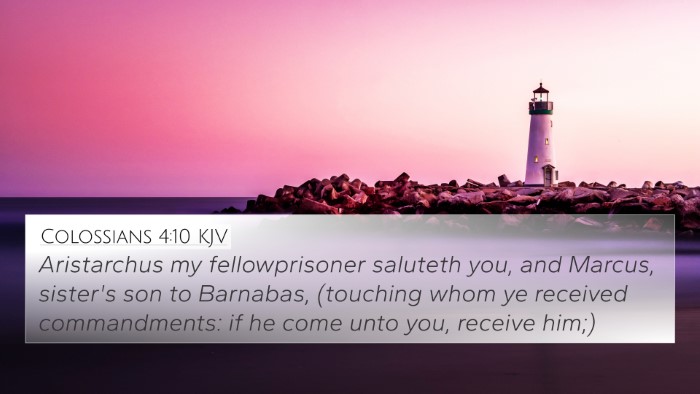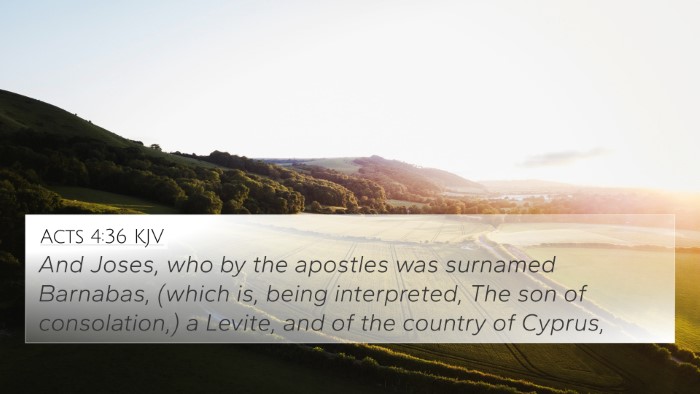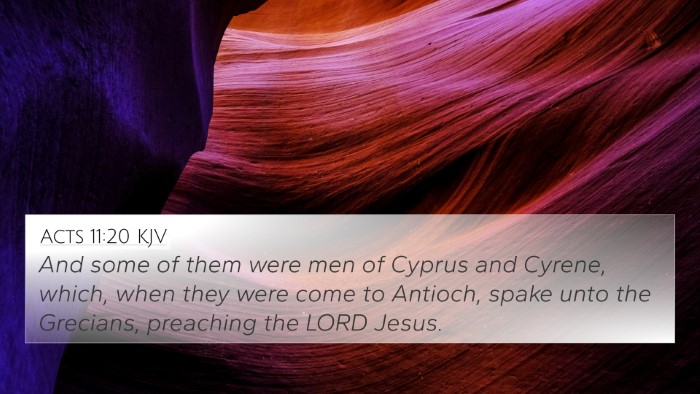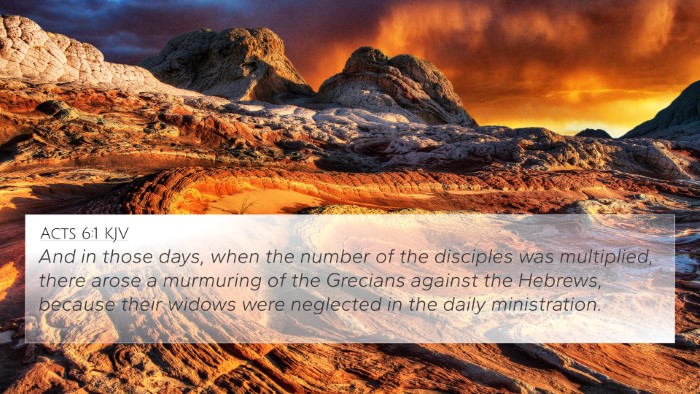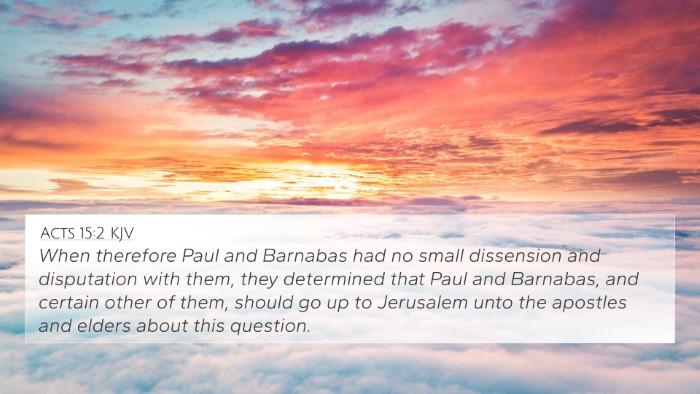Bible Verse Meaning and Interpretation: Acts 15:39
Acts 15:39: "And the contention was so sharp between them, that they departed asunder one from the other: and so Barnabas took Mark, and sailed unto Cyprus." This verse captures a significant moment in the early Church, reflecting the human element of disagreement and conflict among its leaders.
Summary of Insights
Acts 15:39 highlights the sharp contention between Paul and Barnabas regarding John Mark, ultimately leading to their separation. This conflict illustrates the realities of ministry and leadership within the Christian community, showing that even devoted servants of God can have significant disagreements.
Thematic Connections
This verse opens up various themes for comparative Bible verse analysis, including conflict resolution, disagreement in ministry, and the personal dynamics of teamwork.
1. Conflict in Ministry
The sharp contention here mirrors other instances in Scripture where disagreements occur among spiritual leaders, reminding us that differences of opinion can arise even with the best intentions. This leads to a deeper understanding of the challenges faced in leadership roles within the church.
2. The Role of John Mark
John Mark's role as the subject of disagreement highlights the idea of redemption and restoration. Over time, Mark would prove valuable, appearing again in Paul's later letters (2 Timothy 4:11), suggesting that initial disagreements may not determine one's ultimate worth or utility in God's service.
Cross-References Related to Acts 15:39
- Galatians 2:11-13: Paul confronts Peter over the issue of eating with Gentiles, displaying a similar theme of contention.
- 2 Timothy 4:11: Paul mentions Mark positively, showcasing later reconciliation after the initial disagreement.
- Philippians 4:2: Paul encourages unity amidst conflict between two women in the church, illustrating the necessity of harmony in Christian fellowship.
- 1 Corinthians 1:10: The call for unity among believers reinforces the need to resolve conflicts amicably, which draws deeper connections to Acts 15:39.
- Romans 14:1-4: This passage encourages acceptance of those who have differing opinions, emphasizing tolerance in matters of conscience.
- Luke 10:16: Jesus teaches about the responsibility of those who hear His words; their responses can reflect the discord present in human relationships.
- Matthew 18:15-17: Jesus lays out a process for reconciliation among believers, which can be applied to situations of conflict like that seen in Acts 15:39.
- Acts 13:13: This earlier verse discusses Mark’s departure from Paul and Barnabas, providing the backstory leading to their disagreement.
- 1 Corinthians 3:4-7: Paul emphasizes that different leaders can have different roles, yet all are to work together in God’s field.
- Proverbs 27:17: "Iron sharpeneth iron;" suggesting that conflict can lead to growth, a theme resonant with the moment captured in Acts 15:39.
Lessons Learned
This incident teaches us important lessons about Christian community and conflict resolution. It reassures us that disagreements do not signify failure but rather present opportunities for growth, both personally and communally.
1. Importance of Different Perspectives
The divergence of Barnabas and Paul reflects how differing viewpoints can arise from unique experiences and relationships, encouraging the church to embrace various approaches in ministry.
2. God's Sovereignty in Disputes
The resulting separation of Paul and Barnabas led to the spreading of the gospel in more areas of the world, illustrating that God can use even conflicts for His purposes, expanding the reach of His mission.
3. The Need for Reconciliation
As seen in later writings, both Paul and Barnabas recognized the importance of reconciling relationships, which encourages believers to pursue restoration and harmony even after significant disagreements.
Conclusion
In summary, Acts 15:39 serves not only as an account of a historical dispute between two giants of the faith but also as a reminder of the complexities inherent in human relationships and ministry. By examining this verse through scriptural cross-referencing, we can glean deeper insights into the nature of conflict, reconciliation, and the overarching sovereignty of God in guiding His people through such challenges.
Further Study
For deeper insights, consider exploring tools for Bible cross-referencing that can help to identify and analyze connections between verses, such as biblical concordances or cross-reference Bible study guides. Understanding the broader context of biblical themes can enrich your study and application of these verses.




